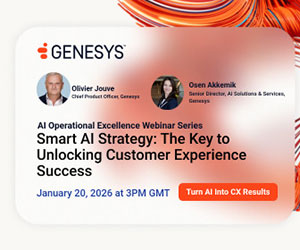When was the last time you did something that gave you a genuine sense of achievement?
For me it was last week, when I hung a picture on the wall.
I know, it sounds a little crazy. But it was an easy project that I’d put off for too long. When I finally got it done, I felt so gratified that I hung couple more pictures and then tackled a bunch of other projects I’d been neglecting for a while.
As accomplishments go, this wasn’t up there with achieving world peace, curing the incurable or running a marathon. But for some reason, it gave me that euphoric feeling that only comes with a job well-done.
As I reflect on it, lots of seemingly mundane accomplishments provide the same sensation. Like the satisfaction of looking over a freshly mown lawn and thinking, “Wow, that looks great!” Or just conquering an unpleasant task, like completing your taxes.
It goes to show that it doesn’t take much to get personal fulfillment from our achievements. No matter how small, our accomplishments have a reinforcing effect on us, enabling us to do even more. Simple things like learning a new song on the guitar, writing a chapter for a book I’m working on or, yes, hanging a few pictures on the wall provide a sense of accomplishment. It’s a great feeling to cross one of these chores off my to-do list, which then spurs me on to the next one.
We’re Missing Something…
Yet that feeling of genuine accomplishment is something that I fear we’re beginning to lose today. Now more than ever, we live in a world of instant gratification, aided by ever-present digital devices that only feed the craving. News headlines, sports scores and the latest gossip are all a finger-swipe away on our smartphones.
And as we discussed previously, we’ve become seduced by social media apps that employ well-engineered algorithms to lure us into an alternate world, satisfy us with a dopamine slow-drip of likes, comments and retweets and keep us hanging around so that advertisers can sell us stuff.
In this digital parallel universe, our sense of achievement has become defined by the number of positive reactions we get from posting a cool picture or making a pithy comment.
It’s no surprise that the average amount of time we spend on our mobile devices jumped 20% in a single year to more than five hours a day, according to TechCruch, more time even than we spend watching TV.
Just to be clear, I don’t have an issue with digital devices, apps or social media; I use them every day. Together they’ve helped us connect with others, solve problems and get things done in ways almost no one could have ever imagined. But the problem is: they aren’t very personally fulfilling.
That sense of satisfaction from getting a few long-delayed things done around the house created in me a positive brain chemistry that was far more fulfilling than the “artificial” satisfaction from accumulating 100 likes on an Instagram post. Sure, the feedback may make us feel good or liked, but have we really accomplished anything tangible?
A Surprising Source of Motivation
So how do we arrive at that genuine sense of achievement, whether it’s at work or our personal life? Daniel Pink, a noted author on work, management and behavioral science, has an interesting theory. When it comes to anything but the most basic tasks, we aren’t very motivated by the “traditional” motivators of fear, money or rewards.
Rather, as Pink says in his book “Drive: The Surprising Truth About What Motivates Us”, our motivation comes largely from within. And there are three factors within us that compel us to do more:
- Autonomy. This represents our desire to be self-directed – to do what we want to do, when and how we want to do it.
- Mastery. This represents an intrinsic urge to better our skills and derive satisfaction from doing so.
- Purpose. This is our desire to do something that is important and has true meaning, either to ourselves or to others.
By tapping into these internal motivators, even unconsciously, we can accomplish great things, like exploring new hobbies or dreams; becoming passionate about our work; and deriving satisfaction from what we do and wanting to do more.
We don’t need to achieve world peace or run a marathon to feel a sense of personal achievement. Anything will do – even hanging a few pictures on the wall. But it need to start by putting our devices aside, at least for a little while.
Author: Guest Author
Published On: 18th Apr 2018
Read more about - Guest Blogs, Jabra





































